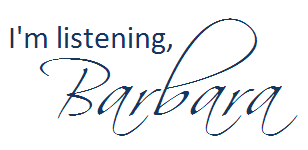 Toward the end of 2008, Jeffrey Keefer and I used Google Docs to collaborate on guidelines for students to follow when writing in their blogs. What follows is the result of our collaboration, along with some of my personal spin added in. Though I wanted to create these guidelines as a guide for my students at Georgia Southern University, they may apply elsewhere as well.
Toward the end of 2008, Jeffrey Keefer and I used Google Docs to collaborate on guidelines for students to follow when writing in their blogs. What follows is the result of our collaboration, along with some of my personal spin added in. Though I wanted to create these guidelines as a guide for my students at Georgia Southern University, they may apply elsewhere as well.
Guidelines for Creating Blog Posts
Keep these general guidelines in mind when you post blog entries for our class:
- Blogs are public, so write in a way that you will be comfortable with anybody reading your work (co-workers, friends, potential employers, parents, etc.).
- Use an engaging title that captures your blog post and promotes reader interest.
- Write about anything that interests you as it relates to our class content, even if there is no specific class assignment. Writers get better writing by writing.
- Give credit where credit is due
- If you use the direct words or lists of another blogger/writer, you MUST put the words in quotation marks.*
- Cite the source by including the name and URL of the source; hyperlink to the source. OR use APA style.
- If you paraphrase another blogger/writer, you MUST indicate where you found the information.*
- Cite the source by including the name and URL of the source; hyperlink to the source. OR use APA style.
- When using images in your blog posts, indicate where the images come from, either by linking back to the image source or providing a photo credit on the page. A great source for images is Flickr, especially when searched using CompFight.
- If you use the direct words or lists of another blogger/writer, you MUST put the words in quotation marks.*
*Note: Failure to cite sources in blog posts will result in the same penalty as failure to cite sources in traditional research papers or other writing projects. Consult with your professor if you are in doubt about how to attribute the sources.
Guidelines for Commenting on Blogs
- Reading your classmate and colleagues’ blogs to will give you ideas for your own writing.
- When you comment on another person’s blog, you can potentially start a dialogue and gain new social contacts.
- Like blog posts themselves, you never know who will read your comments.
- It is good practice reply to comments on your own blog.
Questions about blogging guidelines?


